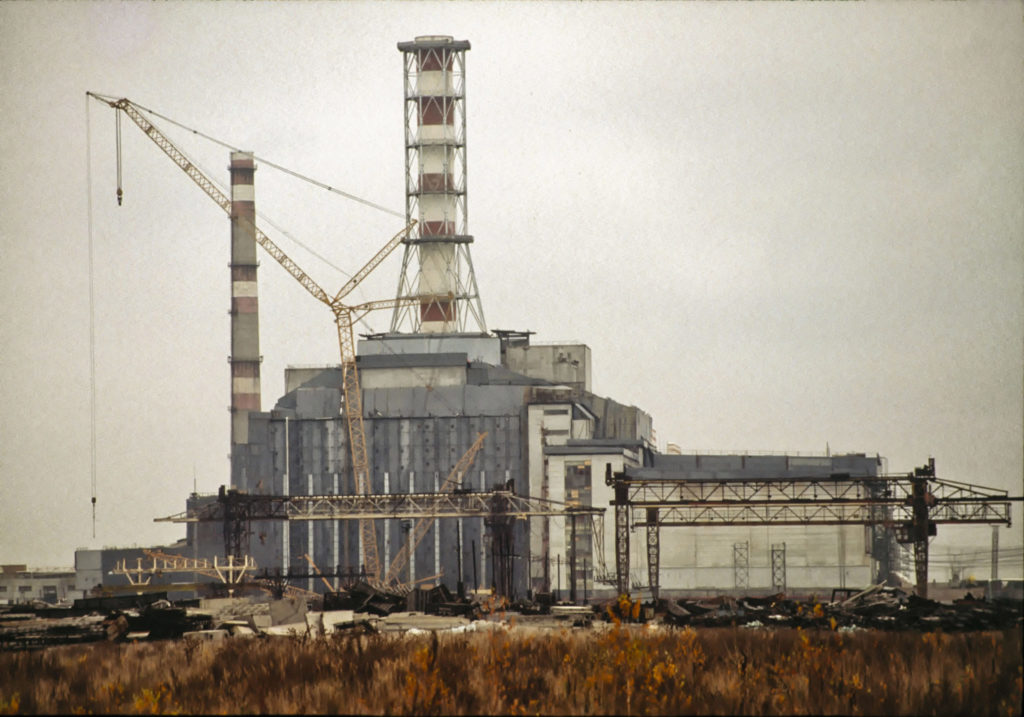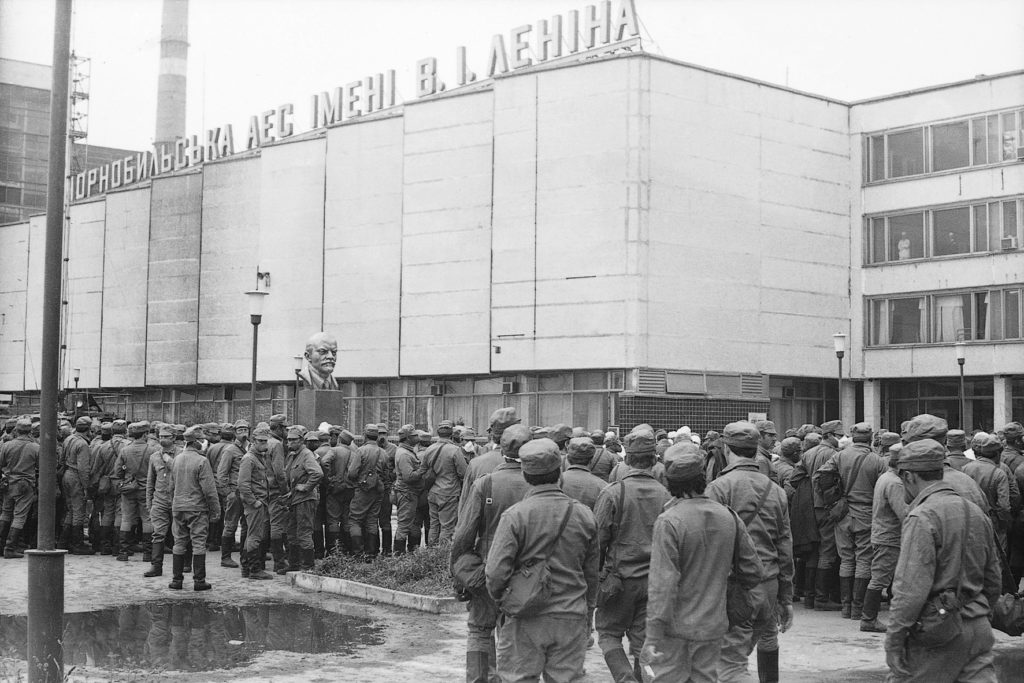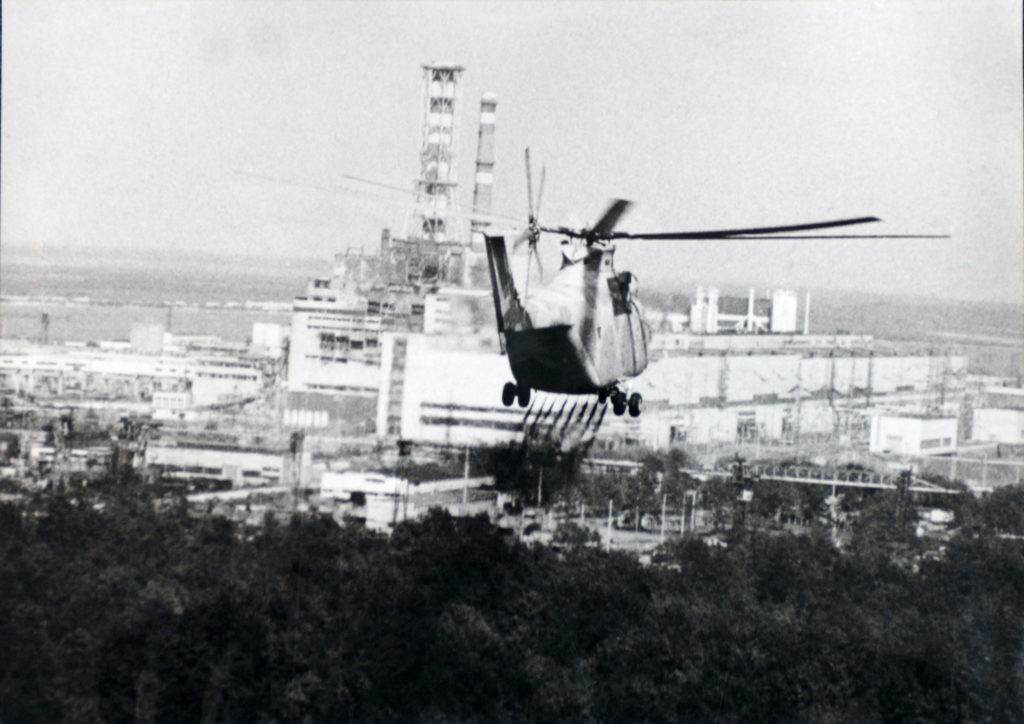Adi Roche has praised Irish people for responding 'like no other' to the Chernobyl nuclear accident.
Monday marks the 35th anniversary of the disaster, with tributes being led by President Michael D Higgins.
He said: "The images of the emergency services fighting the fires emanating from the destroyed reactor, and of the casualties who suffered such catastrophic injuries, remain with us all, as a powerful reminder of the perils that can be associated with scientific endeavours and the ever present possibility of human error.
"That day in Chernobyl cast a dark shadow which will follow us through human history.
"On International Chernobyl Disaster Remembrance Day, 26 April, we recall that fateful day in April 1986 when the news of the nuclear disaster unfolding in Chernobyl stunned people around the globe.”https://t.co/bjIbvKdDGj #Chernobyl35 pic.twitter.com/YLNxnwAWNU
— President of Ireland (@PresidentIRL) April 26, 2021
"The repercussions of this tragedy - the worst nuclear disaster in history, both in terms of both human casualties and wider impact - continue to echo across people’s lives even now, 35 years later, and including so many who were not even born in 1986.
"The tragedy of Chernobyl prompted, too, a remarkable spirit of human solidarity, across the world, including here in Ireland.
"We became one of the first countries to respond to the humanitarian crisis by providing support for, and meeting the needs of, thousands of Chernobyl's victims.
"Ours has been and remains a moving connection created by the many Irish families who have opened their doors to children from Chernobyl-affected and disadvantaged areas of Belarus," he added.
 Reactor number 4 of the Chernobyl nuclear power station, cause of the catastrophic nuclear accident of April 26, 1986, in its concrete sarcophagus containment structure in the wooded, marshy area near the Ukraine-Belarus border in 1990 | Picture by: Arnold Drapkin/Zuma Press/PA Images
Reactor number 4 of the Chernobyl nuclear power station, cause of the catastrophic nuclear accident of April 26, 1986, in its concrete sarcophagus containment structure in the wooded, marshy area near the Ukraine-Belarus border in 1990 | Picture by: Arnold Drapkin/Zuma Press/PA ImagesMs Roche, the founder of Chernobyl Children International, told Lunchtime Live that Ireland is forever linked with Chernobyl.
"In a sense really, this was an invisible war that was declared on these people 35 years ago - against which there was no standing army, against which there was no antidote, no safe haven, no weapon, no way to save your people because it's indiscriminate in how it damages.
"And here we are, 35 years later, seeing the third generation of those that have been impacted for people who are sleeping, eating and breathing in the world's most toxic environment".
'The power of what I saw'
Ms Roche said if she had known then what she does now, she may not have done what she did.
"If we had known the task that was ahead, I probably would, honestly, I'd have run a mile in the opposite direction saying 'I haven't got the capability, I haven't the qualifications, I don't have the money, the resources or the know-how.'
"Sometimes I was just led by my heart, the power of what I saw, the power of what I heard.
"It was the stories of the people, of the children - I was challenged to act really.
"And I suppose from that moment in 1986 until now in 2021, the people of Ireland have been extraordinary.
"They have stood beside us, behind us, in front of us.
"Tens of thousands of families, of volunteers have really take the Chernobyl cause to their heart: they have been unstinting in their support.
"To be honest, like no other country in the world has Ireland acted and responded - we are exemplary."
'An unfolding disaster'
She said International Chernobyl Disaster Remembrance Day has Ireland's stamp on it, forever.
"Sometimes it take two hands to take away the fear and the pain, but sometimes it takes a world of effort to end the suffering.
"And for over three decades, Irish people have been exemplary with their caring hands and their sheltering arms.
"The day that we're marking today being led by our President - marking United Nations Chernobyl Remembrance Day - actually came about because of lobbying from Ireland to the General Assembly at the United Nations in 2017.
"This is a day that will be known as something that has been set up by Ireland for the rest of time.
"So the whole world has an opportunity to reflect on this cautionary tale, really, of Chernobyl that is reaching across into the generations".
And she added that while this may seen in the distant past to some people, the aftermath is ever-present.
"It is a past, a present, a future - and remains an unfolding disaster.
"In a sense what we want to acknowledge today in our reflection of the 35 years is we cannot undo the genetics, we cannot undo the damage which has left an embedded radioactive footprint in the world forever".
She said the people of Ireland "remain the torchbearers" for this tragedy and we will never forget it.
 After the accident at the Chernobyl nuclear power plant, thousands of Soviet soldiers assist with the cleanup in May 1986 | Picture by: UN Photo/Oleg Veklenko
After the accident at the Chernobyl nuclear power plant, thousands of Soviet soldiers assist with the cleanup in May 1986 | Picture by: UN Photo/Oleg VeklenkoApril 26th, 1986
A routine 20-second shut down of the system on April 26th, 1986 seemed to be another test of the electrical equipment.
But seven seconds later, a surge created a chemical explosion. This explosion released nearly 520 dangerous radionuclides into the atmosphere.
The force of the explosion spread contamination over large parts of the then-Soviet Union - now the territories of Belarus, Ukraine and Russia.
According to official reports, 31 people died immediately and 600,000 involved in fire fighting and clean-up operations were exposed to the high doses of radiation.
Based on the official reports, near 8,400,000 people in Belarus, Ukraine and Russia were exposed to the radiation - which is more than the population of Austria.
 A helicopter moves in to help experts check the damage to the Chernobyl nuclear power plant reactor in April 1986 | Photo courtesy of the Ukrainian Society for Friendship and Cultural Relations with Foreign Countries | Picture by: UN Photo/IAEA
A helicopter moves in to help experts check the damage to the Chernobyl nuclear power plant reactor in April 1986 | Photo courtesy of the Ukrainian Society for Friendship and Cultural Relations with Foreign Countries | Picture by: UN Photo/IAEAAbout 155,000 sq. km of territories in the three countries were contaminated, which is almost half of the total territory of Italy.
Agricultural areas covering nearly 52,000 sq km, which is more than the size of Denmark, were contaminated with cesium-137 and strontium-90, with 30-year and 28-year half-lives respectively.
Nearly 404,000 people were resettled but millions continued to live in an environment where continued residual exposure created a range of adverse effects.
A 2019 mini-series 'Chernobyl', with Irish actors Jessie Buckley and Barry Keoghan, dramatised the 1986 accident.








